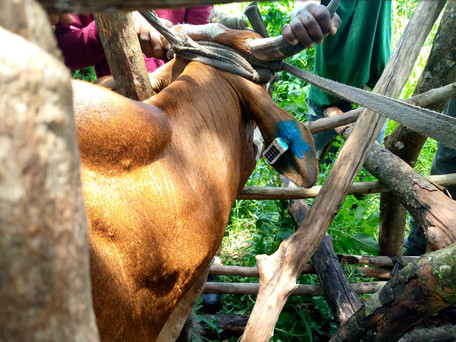Herding for Health: Maputo National Park
- MWA

- Jan 24, 2024
- 1 min read
Maputo National Park introduces the Herding for Health project, a pragmatic community-driven livestock management model designed to support the livelihoods of rural communities in and around protected areas. This initiative focuses on imparting sustainable grazing practices to mitigate ecological issues associated with overgrazing and employs technology for effective monitoring.
The Herding for Health project prioritizes responsible livestock management by educating the community on sustainable grazing practices. The goal is to prevent overgrazing and address ecological concerns, striking a balance between community needs and environmental preservation.
A key aspect of the project involves integrating technology to monitor grazing areas. Project coordinator Mr. Manuel enlisted the MWA vet team to deploy GPS tags on female livestock. This technological intervention enables real-time tracking and analysis, facilitating informed decision-making in grazing management.
The deployment of GPS tags on female livestock enhances the project's ability to monitor grazing areas efficiently. This data-driven approach aids in preventing overgrazing and aligns with broader ecological conservation objectives. The GPS tagging initiative serves as a practical tool for the coordinator, enabling proactive grazing management decisions.
Maputo National Park's Herding for Health project exemplifies a pragmatic blend of community-driven support and ecological conservation. By promoting sustainable grazing practices and leveraging technology for monitoring, the initiative contributes to a balanced coexistence between human livelihoods and wildlife. As the project unfolds, it promises practical solutions to the challenges of livestock management and ecological preservation in protected areas.













Comments